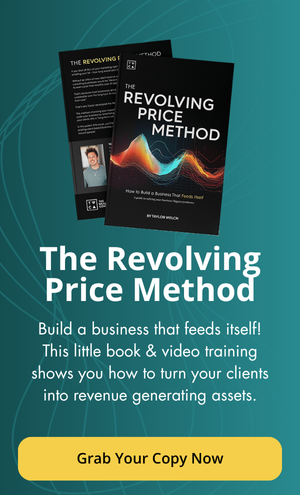The Psychology of Salesmanship
Sales is the lifeblood of most small businesses.
It’s the number 1 way that many consultants we work with get new revenue in the door each month.
As such, there are no shortage of books, courses and programs claiming that they will help you sell more. There’s an entire market built around nothing BUT that.
However, almost none of them talk about one of the most important aspects of how the game of sales is played: the psychology of ethical salesmanship.
See, successful salesmen know that what happens between your ears during a sales conversation is almost as important as what comes out of your mouth.
So, today we’re going to look at the 3 rules of ethical sales. Consider this less of a “say this, then that” article, and more of a refresher on how to THINK when you are closing a deal.
Rule 1 – Your only job is to help the prospect make the best decision for them.
The worst mistake you can make when you get on a phone with a prospect is believing that your job on that call is to “make the sale.”
Ethical salesmanship starts with the understanding that you’re not there for you at all. You are there for the prospect.
You’re not trying to get them to do what suits you, your business, or your bank account. You’re not there to “tie them down,” manipulate them, or get their credit card.
NO.
You are there to help them make the decision that is best for them.
This is an inviolable rule – all of what we are about to talk about only works if you’re there for the right reason to begin with. The moment you start caring less about what the prospect actually needs and more about getting your hands on their money, you lose all moral authority. You’ll say whatever you think you need to say, make empty promises, and even enroll horrible clients – all because you start to “need” the sale.
Rule 2 – What’s best for the prospect is almost always outside of their comfort zone.
If what the propsect truly needed to do was inside of their comfort zone, they would have already done it.
Plain and simple.
Fear is a useful part of human evolution – healthy fear keeps us alive. It’s fear that keeps us from jumping in shark infested water without protection and getting ourselves killed. But, left unchecked and unchallenged, fear can also cause us to stagnate and lose momentum.
Most people you get on the phone with will be in the latter state. A state of loss aversion… of fear of failure… of your solution “not working” for them…
You should not be surprised by this. On the contrary – you should expect it.
Rule 3 – The prospect will fight like hell to stay inside of their comfort zone.
This is why sales is difficult.
This is why most sales people bungle winnable sales calls.
The trick is in refusing to get adversarial – and, instead, deciding to LEAD.
If you care about improving their lives, lead them. Remember rule #1 – it’s not what’s best for you, it’s what’s best for them.
This might mean that you have to say something extremely unpopular. It might mean that you have to challenge an outdated mode of thinking. It might mean that you get hung up on.
However, if it is in service of making their lives better, congratulations – you have led them well. And, if you’ve led them well, you can rest assured that they will thank you later (and maybe even give you their hard earned money to get your help).
Forever Changing Your Sales Game
Once these 3 rules become engrained in your psychology, you start approaching sales differently.
You stop running from the difficult moments. You start holding the prospect accountable for their own success.
You begin painting a picture of a future for them that is much bigger than their current circumstance. Then you begin showing them the path to get to that future.
The power to ethically sell starts in your mind.

Unlock More Insights Like This Monthly
Each and every month, we compile insights, lessons, and learnings from the front lines of our multi-million dollar consulting business, and release them to a group of over 1,000 subscribers through our Consulting Digest. Become a subscriber today for as little as $7/month (digital).

